Best Quality Control Service in China
SourcingAgent Believes In Quality And Contributes To It. We Have A Team Of Certified Professionals Who Go For Full Inspection Before And After Production. You Can Anticipate 100% Qualitative Standards.

Checklist of Quality Control Service in China
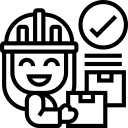
Factory Audit
Has the factory been inspected for quality? We only learn about it during manufacturing inspections. You obtain inventory that is safely manufactured from reputable Chinese factories. More sales and income result from it.

Supplier Background Check
Our experts investigate the supplier's top performances. You only receive suppliers who have undergone expert scrutiny. Negotiations and processes involving profit margins get more simpler.

Pre-Production Inspection
A Pre-Production Check Is Our Top Focus. It Ensures The Quality Of The Finished Product. You Will Receive Quality Items. It Will Propel Your Company Forward.

In-Process Inspection
Our experts conduct an in-process examination to ensure that products have high integrity and desired qualities. This provides you with safe products that will impress your customers.

Pre-Shipment Inspection
We examine the product quality and quantity before shipment to ensure that we have gotten the exact items with exact numbers. There are no mistakes in any kind! You will be provided with a standardized pre-shipment analysis report as well as flawless products.

Final Check
Our last inspection identifies faulty items and does everything possible. Accurate shipping with zero percent damaged goods urge your customers to return. More sales if clients return!
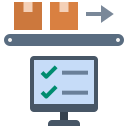
Container Loading Check
We determine the entire number of packages and load the exact number of things before loading. Accurate goods with accurate numbers eliminate the hazards of damaged inventory and inventory misplacement. Your clients receive 100% accurate shipments on schedule.

First Article Inspection
Our staff investigates the first article's ingredients and quality. You obtain items with the greatest integrity. Quality raises conversion rates. More income is anticipated.

AQL(Acceptable Quality Limit) Inspection
We use ISO 2859 recognized standards to verify that the product satisfies your specifications. The requested item with the specified qualities is available. Go ahead and rock your company with desired quality.

Amazon FBA Inspection
Our expert staff is prepared to inspect the items for amazon fba. You'll get high-end secure products to ship to your amazon warehouses. There is no trouble or strain.

Amazon FBA Prep
We prepare your items for transportation to the amazon warehouse. You anticipate custom packaging, labeling, and delivery to amazon warehouses. There is no additional pressure on you for contemplating multiple tasks.

Full Inspection
Our inspection specialists check your items from beginning to end. 100% inspection ensures the quality and integrity of the product. With ease, you obtain the detailed reports.

CE Compliance
We also believe in ce compliance, which is very important if your consumers are from europe. Your consumers will receive items that are compliant with european standards. This manner, complete customer satisfaction is guaranteed.
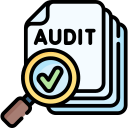
Social Compliance Audit
We investigate your vendors' social and ethical performance requirements. This method will get you the best fit and negotiable suppliers. And in the end, quality is what you get. Obviously, there will be additional business prospects in the future.
Trusted By








SourcingAgent - Your Trusted Quality Inspection Partner
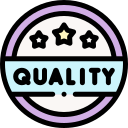
Professional Quality Guarantee
We guarantee quality goods. Our quality inspection confirms it. You attract more clients and close more deals when you offer quality products.

Product Quality Reports
We give product inspection and quality reports to validate our hard work. You go over the reports and confirm the high integrity of the products. It provides professional fulfillment.

Transparent Result
All inspections and outcomes are completely transparent. You go through all of the details and determine your items by hand. All transparent outcomes will boost trust.

One-to-one Service
You contact us, and we assign a professional agent to serve as your exclusive project manager. One-on-one service answers all of your questions, makes you feel more content, and results in better communication quality.

Fully Managed Risk
Our specialization is risk management, and we do it artfully. With risk management, you are more satisfied with the products—there is no need to be concerned about risk with us.

Free Warehouse
We have warehouses where we can handle your goods. You are not required to pay a single penny. No unnecessary costs, budget saved; invest and expand your business.
Request A Quote Now!
Send us your requirements, and we will get back to you shortly.
Quality Control Services in China
China is becoming the manufacturing hub of Asia and a popular source for apparel manufacturers and retailers across the globe. Even though “Made in China” is no longer always a bad thing, any company trying to safeguard its supply chain needs to continue placing a high premium on efficient quality control systems. QIMA conducts supplier audits, lab testing, and product inspections in all regions of China. With offices and labs spread throughout China and Hong Kong, QIMA can help you maintain product quality, prevent supply chain interruptions, and safeguard the reputation of your brand.
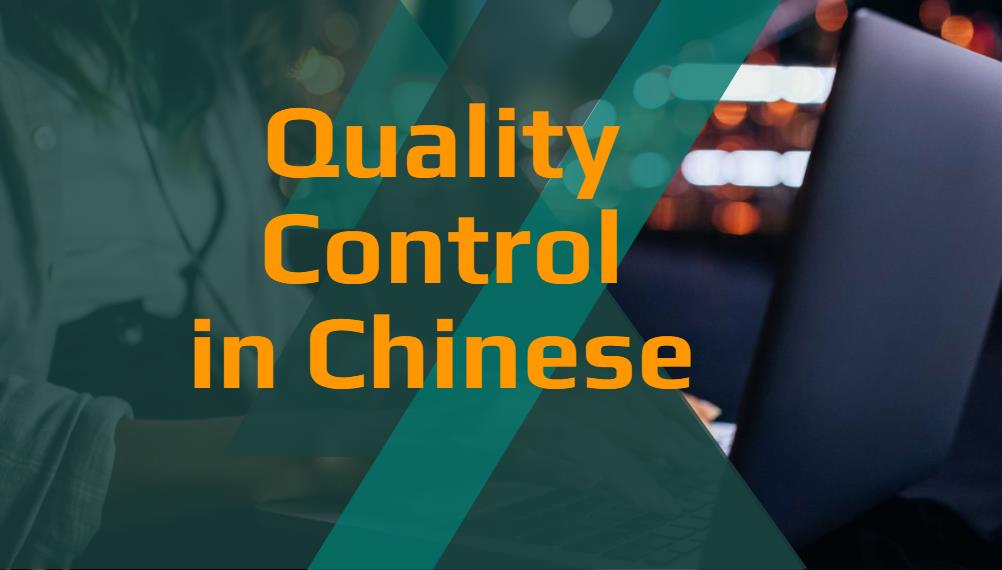
What is Quality Control in China?
Quality control in China refers to proactive efforts done by importers and their Chinese inspection firms to ensure product quality. China’s quality control method is meant to assist you in partnering with the proper supplier to ensure you import excellent items. Quality inspection services that focus on evaluating potential suppliers can help to prevent fraudsters and inept manufacturers, while factory audits can highlight suppliers’ skills. Social audits examine the supplier’s ethical behavior, such as workplace equity, environmental concerns, and human rights. The pre-production audits and inspections form the cornerstone of the China QC process, but it should be directed by a complete quality control checklist.
Once you’ve identified and partnered with the correct supplier or manufacturer in China, a quality inspection services provider you’ve chosen will focus on product inspection, beginning with an initial manufacturing check prior to mass production. They will then move to DUPRO and Pre shipment inspection (PSI). When the inspection agency monitors the loading of your items for transportation, your quality control procedure in China is complete. It is evident that following quality control best practises while dealing with Chinese vendors provides several advantages.
Five Points Of Quality Control China
Through a variety of internal and external product inspections, quality control is the process of concentrating on producing goods that meet the necessary quality specifications. It is a component of the majority of global standard manufacturing processes.
However, the real quality control methods could vary based on your product and the manufacturing setting. Having said that, when it comes to ensuring the quality of your products in China, bear in mind the following five points.
1. The Quality of Chinese Products Is Not Low
One of the most widespread misconceptions regarding Chinese goods is that they are of low quality, more akin to throwaway items. That is untrue, though. While some manufacturers might not care about quality, the majority of reputable, experienced, and top producers often show a good understanding of quality control.
A reputable manufacturer will frequently make the financial commitment to acquire the knowledge and tools needed to achieve the necessary quality standards. Additionally, they agree to submit to independent quality control inspections when instructed by the purchasers.
Additionally, they are prepared to pay for premium raw materials. Which leads us to our next point: producers must understand precisely which quality requirements to adhere to and when.
2. You Must Identify Your Needs First
Before you sign the contract, it is crucial that you, the buyer, specify your quality control criteria. Regretfully, the majority of purchasers only examine the golden sample, give their approval, and instruct the producer to begin production. But this is a highly dangerous course of action.
It is insufficient to merely approve a golden sample. All quality requirements and necessary inspections must be spelled out in detail. The best technique is to give the manufacturer a written document that has all of the necessary quality criteria, stated precisely. Don’t forget to incorporate the safety requirements in the contract as well.
Collaborate with a proficient translator to translate those quality standards into Mandarin. Clear-cut quality control documentation and instructions make it generally easier for the producer to produce the required outcomes. Ensure that all correspondence is sent in writing, with clarity guaranteed. Additionally, confirm that the manufacturer has comprehended your intended message.
3. Cost of Manufacturing and Quality Put Hands Together
In addition, as a buyer, you must understand that manufacturing prices and quality are directly related, no matter what or where you are outsourcing. Stated differently, you obtain what you pay for.
Unfortunately, the majority of consumers frequently visit China solely to reduce manufacturing costs. However, the cost of purchasing high-quality raw materials, manufacturing machinery, and hiring qualified workers is incurred.
If you are unwilling to pay for this, the manufacturer will be compelled to employ low-quality raw materials and inexperienced labor to meet your absurdly low rates, which will result in subpar products for you. Therefore, in order to guarantee superior outcomes, you must make sure that both your quality control requirements and costs are reasonable.
4. Collaborate with Trustworthy Manufacturing Partners
Of course, the most important factor in maintaining compliance with the necessary safety and quality requirements will be the product maker. In summary, if you want to create bespoke (made-to-order) products, you should select a reputable, talented, and experienced product maker.
When creating bespoke items, steer clear of working with large-scale manufacturers because they frequently lack the necessary flexibility and expertise in specialized fields. Work with a manufacturer who specializes in your specialized market instead.
They frequently have a solid track record in your area of producing high-quality goods. Additionally, it’s possible that they are well-versed in quality control procedures and the production process. You can therefore begin producing quite rapidly.
Do consider the following factors before choosing a manufacturer.
During peak season, the manufacturer should be able to accommodate the increased order volume.
Shareable client references and any qualifications they may have should be a given.
They ought to be open to cooperating with an outside quality control inspector.
They must to have at least four or five years of experience producing goods comparable to yours.
5. Assure Careful Examination of Products
In order to ensure a realistic but strict product inspection, this is the last but most crucial step you need to take. To ensure that the intended level of product quality is maintained, you can consult your own employees or a Chinese third-party quality control inspection business. But keep in mind that the manufacturer must cooperate fully with third-party examinations.
Inspections ought to be done prior to, during, and following production. Prior to shipping, you should inspect the items and their packaging. Make sure you perform routine laboratory and on-site tests as needed. To prevent any delays, you must always be in continuous and open communication with the manufacturer. The sooner you begin to ensure quality, the better.
Associating compensation with product inspections is another method of guaranteeing improved quality control. Therefore, in order for the manufacturer to get paid, they will need to rebuild the product if your quality control system discovers any problems with it. They will also need to agree and comply with third-party inspections.
Importance of Quality Control in China
Maintaining quality control is essential to making sure your products live up to regulatory, internal, and customer requirements. You can monitor the quality of items made in China to assure adherence with the aid of product inspections, audits, and laboratory testing.
In order to maintain consistency in quality and compliance when manufacturing in China, it is crucial to have your products and procedures assessed by a reliable third party. Utilize our manufacturing inspections and best-in-class audits to ensure that every stage of your manufacturing process has the quality control it needs. Regardless of the service you require, the QIMA online platform makes buying and receiving reports straightforward.
Benefits of Quality Control when Importing from China
Whether you are an importer or a retailer, China’s quality control may help your company in a variety of ways. Here are a few advantages of quality control for importers working with Chinese suppliers. All of these advantages are only available if your product inspections and supplier audits are performed by the appropriate body.
- Verify your items exist
- Verify that your products are labeled and barcoded
- Verify the number of products is correct
- Inspect product quality
- Inspect product packaging
- Avoid non-deliberate/deliberate and careless mistakes from your supplier
- Verify your shipment before the final payment
- Prevent all the future risks
- Suppliers will take your orders more seriously
- Improve your brand’s reputation, which may increase sales
- Container Loading Supervision (CLS)
- Supplier & Factory Audits
- Supplier Verifications
Manufacturing Process Audits - VDA 6.3 Process Audits
- ISO 9001 Audits
- ISO 13485 Audits
- IATF 16949 Audits
- Security Audits (C-TPAT)
- Social Compliance Audits
- Supplier Management Services
Who can Undertake Quality Control for Imports from China?
Quality control extends beyond the purview of a single agency. Importers working with Chinese suppliers might transfer their quality control process to one of four entities:
Manufacturer evaluation in-house
Importers delegate power to the producer to manage quality control. It is dangerous since they will be reporting on their operations.
Buyer quality control. As the purchaser
You can do quality control by personally visiting the manufacturer or selecting one of your employees to monitor the entire process.
Sourcing Partner or Supplier
You can also delegate quality control to your Chinese partner or supplier, which is riskier.
Internal Inspection Team
Hiring or forming a QC team within your organisation is another excellent option for ensuring accurate and unbiased outcomes. It may be expensive and unprofessional.
China’s third-party inspection agency. You should use a third-party inspection company with years of expertise in the Chinese manufacturing business, such as Tetra-Inspection.
Effective communication will be critical to the success of your cooperation. You may make a quality control or inspection checklist.
How Does Quality Control Work in China?
In China, implementing efficient quality control procedures necessitates a series of stages. Here’s a broad rule of thumb:
1. Establish quality standards:
Define the quality standards in detail, including product specifications, permissible tolerances, and particular testing or inspection criteria.
2. Choose dependable suppliers:
Select reliable suppliers with a track record of creating high-quality goods. Conduct audits or evaluations of suppliers to check their manufacturing capacity, quality management systems, and compliance with industry standards.
3. Create a quality assurance plan:
Create a detailed plan outlining inspection points, testing processes, and acceptance criteria at various phases of manufacturing. This strategy should include raw material, in-process, and final product inspections.
4. Conduct pre-production checks:
Conduct inspections before manufacturing begins to verify suppliers understand the standards and have the appropriate resources and supplies.
5. Conduct in-process inspections:
Inspect manufacturing processes on a regular basis to discover quality concerns, monitor progress, and spot deviations from agreed-upon criteria. Visual inspections, measurements, and functional testing may be required.
6. Inspect the finished product:
Perform extensive pre-shipment inspections once production is completed to ensure that final items satisfy the needed quality standards. Visual checks, functional testing, packaging inspections, and quantity verification are all part of this process.
7. Employ random sampling:
Select random samples for inspection using statistical sampling techniques to ensure an impartial representation of overall product quality.
8. Make use of third-party examination services:
Consider enlisting the services of independent third-party inspection firms with experience performing comprehensive and unbiased inspections on your behalf.
9. Maintain contact with suppliers:
Establish open lines of contact with suppliers to communicate quality requirements and offer fast feedback on any issues that arise. Work with suppliers to address and resolve quality issues.
10. Constant improvement:
Monitor and assess the performance of your quality control methods on a regular basis. Identify areas for improvement and collaborate with suppliers to put corrective and preventative measures in place.
China Quality Control FAQs
How many times does it take to get the quality inspection report?
The timing for the report is determined by a number of factors. For example, if you need a report today, it may not be possible if more analysis is required.
However, I can recommend the best option for the report. When the samples are sent, it usually takes 24 hours to review them. Some laboratories allow you to request reports sooner than the specified time. They may charge an extra fee for speedy reports.
When should you hire quality control methods in China company?
A quality control China firm can help you discover the desired product quality. You may not always be accessible to use quality control measures. As a result, it is preferable to use a quality control China firm. When you want quality control in China, here is where you should look.
- When you don’t have enough time to visit the location personally.
- When you don’t know how to perform quality control procedures.
- Professionals are usually the best choice.
- You import items from China.
Companies in China use statistical quality control charts for quality control. These statistical quality control charts aid in determining the samples’ quality.
Does China have quality control?
Quality control in China refers to proactive efforts done by importers and their Chinese inspection firms to ensure product quality. China’s quality control method is meant to assist you in partnering with the proper supplier to ensure you import excellent items.
Does China produce high-quality products?
You’re mistaken: Chinese factories don’t just produce low-quality goods…
China’s factories occasionally produce low-quality goods. However, many are capable of producing both high-tech and high-quality items. Indeed, many importers continue to find success buying items from China, despite rising manufacturing wages.
How much does inspection cost in China?
Hiring a third-party quality control inspection organization in China can cost you between $199 and $299 every working day. This charge is often used when the warehouse or plant is located within 60 km of the inspection company’s office. The charge rises as the distance increases.
Conclusion
To guarantee efficient application of quality control practises, it is strongly advised to engage with experienced individuals or quality control organisations knowledgeable about local rules and industry standards in China.
To summarise, knowing and accepting cultural differences, working with specialized manufacturers, properly expressing expectations, and realizing the price-quality relationship are all critical for maintaining excellent product quality while producing in China.
